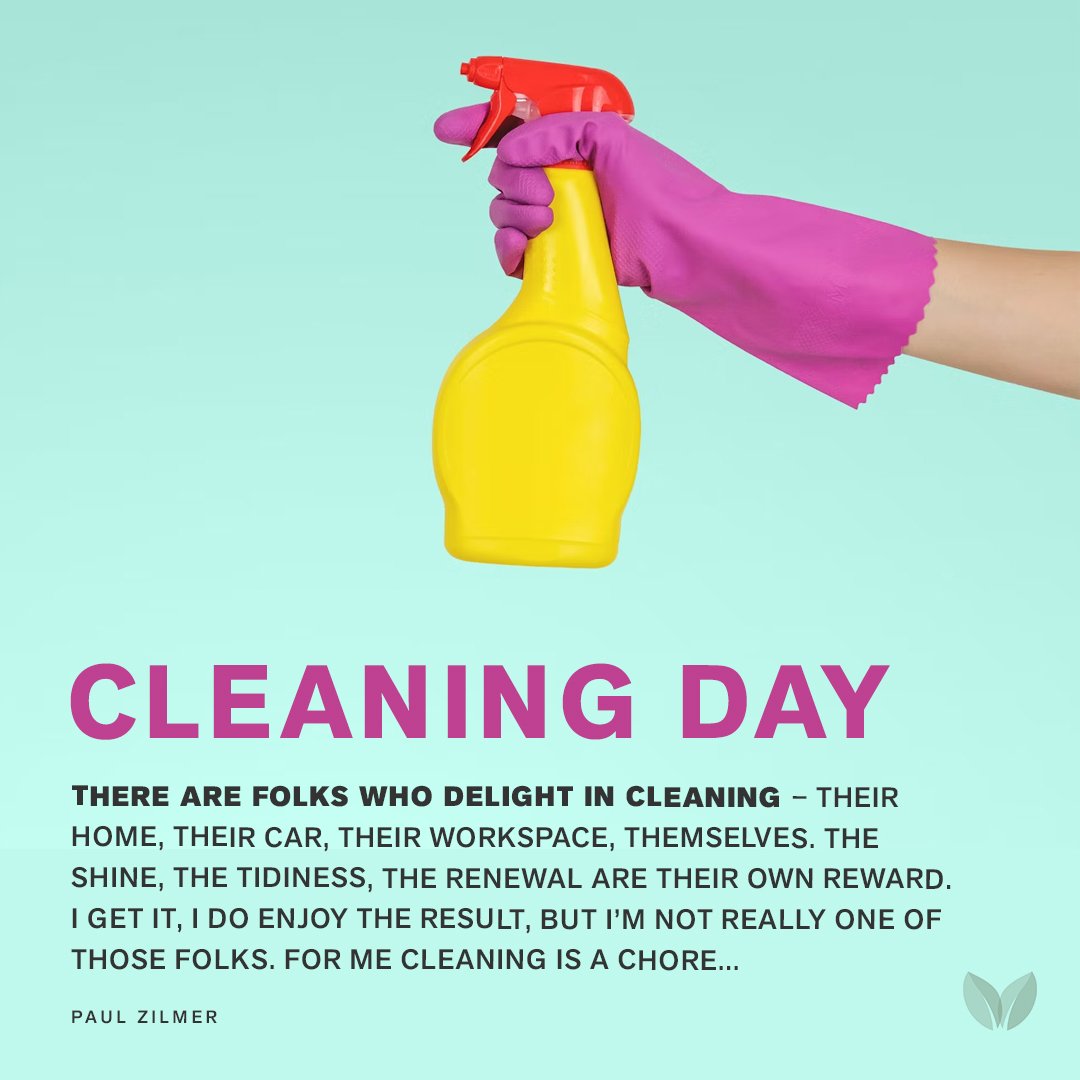Cleaning day
There are folks who delight in cleaning – their home, their car, their workspace, themselves. The shine, the tidiness, the renewal are their own reward. I get it, I do enjoy the result, but I’m not really one of those folks. For me cleaning is a chore.
In God’s Word we find a lot of attention given to washing and cleansing. A search in the version I use most often brings up over 600 hits. It would appear that the folks more engaged than me with cleaning, are more in tune with the Almighty than I am. Maybe I should reexamine my attitude about it.
With so many passages to consider, this looks like a pretty big topic. So for now we’ll have to be content with “once over lightly”. Even a quick review brings some important things to light.
Over half the passages are in the Law of Moses. Being clean or unclean—a person, a garment, a house, something eaten—matters enormously under the Law. The point, God says: “You are to distinguish between the holy and the common, and between the unclean and the clean.” (Leviticus 10:10) It becomes clear that this is part of the concept of separation, which is what “holiness” means. Israel was to be holy, separate from other nations, whose idolatrous practices and moral standards are declared to be unclean.
As we read the books of the Law, it becomes clear that the ordinary Israelite would be considered unclean virtually all the time! Since the Law was intended to bring Israel—and all the world—to Christ (Galatians 3:24), we have to conclude that this is one of the most important lessons. We are, by nature and by our behavior, unclean in God’s eyes. Ritual uncleanness under the Law isn’t actually the point. It’s intended to make us recognize that “none is righteous, no not one”, as Paul says quoting Psalm 14. You should stop here and read Romans 3:9-20, where Paul emphatically makes the point, citing four different Old Testament passages.
It might not be what you would expect, but my search turned up 114 passages in the New Testament—this isn’t something that was only part of the Law. The principle remains unchanged. It’s about holiness, sanctification, separation. When Saul of Tarsus (who would become Paul the apostle) was confronted by Jesus, he was told by the Lord’s emissary, “And now why do you wait? Rise and be baptized and wash away your sins, calling on his name.” (Acts 22:16)
Paul would go on to teach this himself: “But you were washed, you were sanctified, you were justified in the name of the Lord Jesus Christ and by the Spirit of our God.” (1 Corinthians 6:11) And, “[God] saved us, not because of works done by us in righteousness, but according to his own mercy, by the washing of regeneration and renewal of the Holy Spirit.” (Titus 3:5) The writer to the Hebrews adds, “Let us draw near with a true heart in full assurance of faith, with our hearts sprinkled clean from an evil conscience and our bodies washed with pure water.” (Hebrews 10:22) The apostle Peter adds, “Baptism…now saves you, not as a removal of dirt from the body but as an appeal to God for a good conscience, through the resurrection of Jesus Christ.” (1 Peter 3:21)
Why is baptism, immersing the whole body in water, presented as the means of coming into Christ, of forgiveness, of regeneration, of salvation? It’s built on the foundation of the concept of cleanness. As we know from our recurring need to clean, stuff gets dirty. The lesson that spans the entire Bible is: You get dirty. Morally and spiritually, as well as physically. We are unclean, but by God’s grace and our faith, we can be cleaned.
I’m trying to keep this lesson in mind as I do some cleaning today. Such a simple thing, that can carry such a profound significance.
I’m reminded, too, that cleaning isn’t a one-time thing. The house, the car, our clothes and our body, have to be cleaned over and over. Our baptism, the “appeal to God for a good conscience,” marks the transition to being in Christ. But we get dirty again, we sin again. What then?
Jesus gives this assurance, when he washes his disciples’ feet: “The one who has bathed does not need to wash, except for his feet, but is completely clean. And you are clean, but not every one of you.” (John 13:10) Jesus says two important things here. First, it is possible to regain cleanness, even though we get dirty after being fully washed. And second, it’s possible to become someone who remains unclean, as Judas did—even after being baptized, and spending years working with Jesus, and at that very time having his feet physically washed by Jesus. Judas went out and betrayed his Lord. This is a sobering reminder. At that last dinner Jesus warned, “One of you will betray me.” They all asked, “Is it me?” I think it’s a question we each should ask. There is the potential in us to be betrayers, to return to uncleanness. Thankfully, there is also the opportunity to have the dirty parts washed again!
Well, my cleaning chore is done for today. I guess it wasn’t that bad. And it gave me something to think about.
Love, Paul


